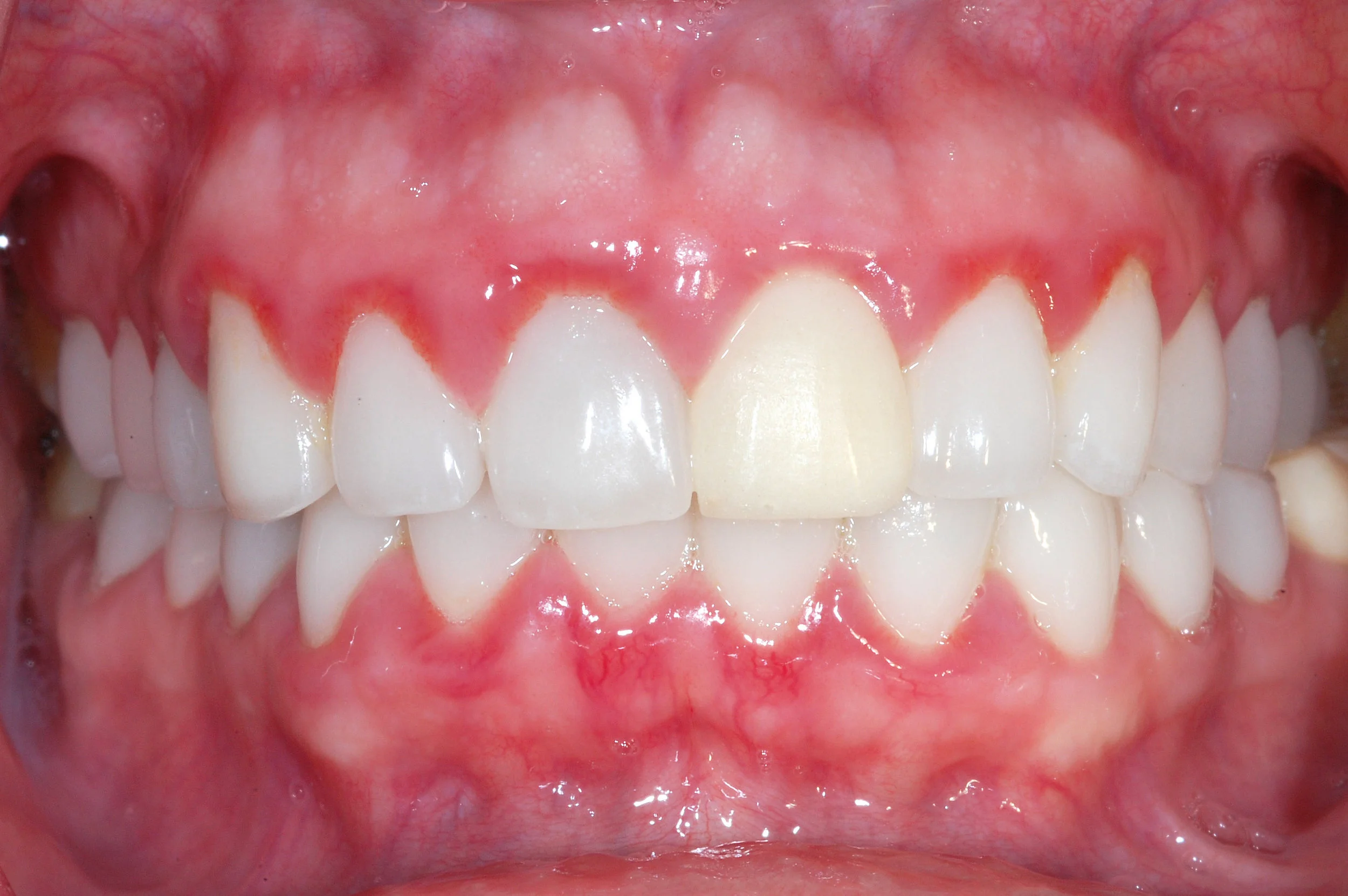Safety of Oral Health During Pregnancy
An example of what Gingivitis looks like on the gums in your mouth.
Pregnancy is a wonderful and exciting time. While your family is going to go through some big changes, so is your body; and I am not just talking about your belly. In fact, during pregnancy your mouth changes as well. The health of the mouth can be affected by pregnancy and in turn your baby’s health can be affected.
During pregnancy your body is on high alert for anything it deems potentially harmful to your baby since you share everything with your baby. The most common is the inflammation of the gum tissue, also known as pregnancy gingivitis. Gingivitis may result from your body’s defense system to the bacteria in the gum tissue. The tissue may appear red, puffy, and can bleed easily while brushing and flossing.
Another thing that is harmful to your baby is cavities. Cavities are more likely to form during pregnancy due to the increased snacking, acid inside your mouth due to vomiting, or poor oral hygiene caused from nausea and vomiting. Erosion is the last dental concern caused by vomiting.
To help avoid erosion on the teeth it is important not brush immediately after vomiting. Instead rinse with water mixed with baking soda (1 cup water to 1 tsp baking soda) to help neutralize the acid.
An example of what Erosion looks like in a mouth.
What to Avoid During Pregnancy
There are many things to avoid during pregnancy, but staying away from your dentist is not one of them. The American Dental Association and The American Congress of Obstetricians and Gynecologists agree that you should see your dentist and hygienist every 4 months to help remove bacteria under the gum tissue to keep the mouth healthy. There are even certain procedures such as extractions, root canals, and fillings that can be performed during pregnancy. Prolonging doing these procedures may result is more complex problems that can affect the baby.
X-rays are considered safe during pregnancy. Most professionals avoid taking unnecessary X-rays such as cavity detecting X-rays unless there is an area of concern. Whitening the teeth is another thing to avoid during pregnancy.
There is not enough research to say if there are harmful effects on the growing baby, but due to the chemicals used in bleaching trays. It is better to avoid using bleaching trays until after pregnancy and breast feeding.
Home Care is Best!
Good home care is the most important thing you can do for you and your baby. Due to the increase in gingivitis and cavities it is recommended to brush twice daily with a soft-bristled tooth brush and floss once daily. Using a tooth paste that contains fluoride is important to help strengthen the teeth and minimize the effects of erosion. It is also recommended to have a topical fluoride treatment done at your dental visit as well to help strengthen the teeth.
Here are some other articles you may enjoy reading
Step-By-Step Guide for a Child’s Dental and Oral Health
What’s the best way to jump-start your child’s dental health? Check out these great tips on how you can secure the future of your child’s teeth.
The Dangers of Mouth Cancer
Being aware of what to look for inside and outside your mouth can be the difference between life and death. Here’s a quick mouth cancer check that you can do from home!
Why Baby Teeth Are A Big Deal
Baby teeth do more than just fall out! Follow these simple steps and help your kids have a healthy smile.
References
American College of Obstetricians and Gynecologists Committee on Health Care for Underserved Women Oral Health Care During Pregnancy and Through the Lifespan. 2015.
Niessen LC. Women's Health. In: Patton LL, Glick M, editors. The ADA Practical Guide to Patients with Medical Conditions. Second ed. Hoboken NJ: John Wiley & Sons; 2016. p. 423-34.
Steinberg BJ, Hilton IV, Iida H, Samelson R. Oral health and dental care during pregnancy. Dent Clin North Am 2013;57(2):195-210.
Silva de Araujo Figueiredo C, Goncalves Carvalho Rosalem C, Costa Cantanhede AL, Abreu Fonseca Thomaz EB, Fontoura Nogueira da Cruz MC. Systemic alterations and their oral manifestations in pregnant women. J Obstet Gynaecol Res 2017;43(1):16-22.
Giglio JA, Lanni SM, Laskin DM, Giglio NW. Oral health care for the pregnant patient. J Can Dent Assoc 2009;75(1):43-8.


